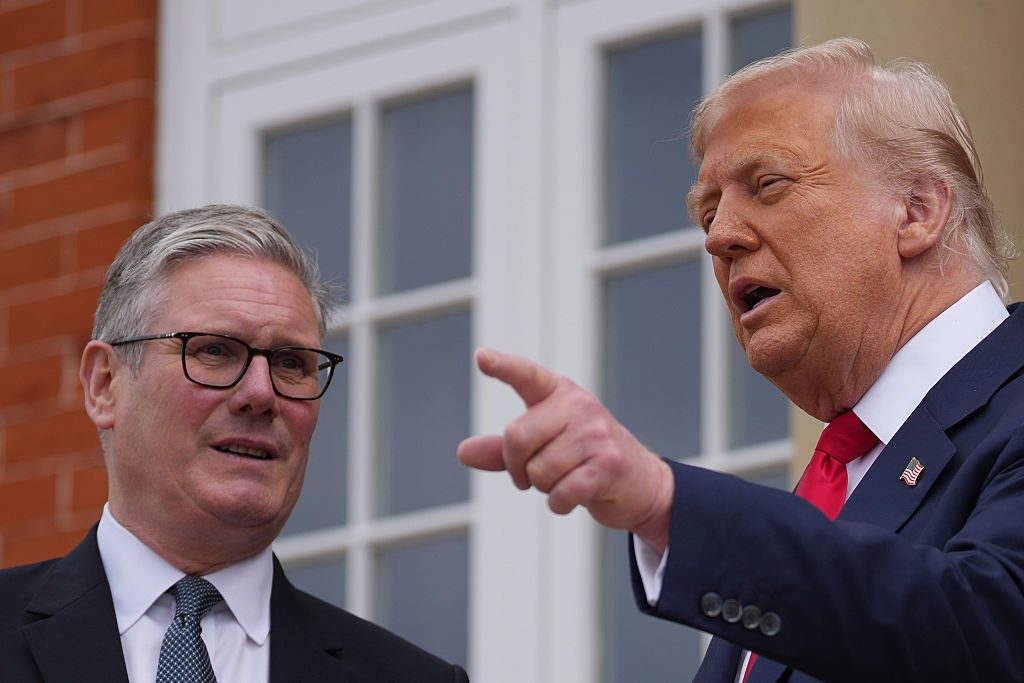Next week, President Donald Trump will arrive in the UK for a state visit at a time when the so-called “Special Relationship” feels weaker than it has in decades.
Over the past year, the US has repeatedly signaled concern over what it views as Britain’s descent into illiberalism. At the Munich Security Conference in February, Vice President JD Vance said free speech in Britain is “in retreat”. In July, a bipartisan delegation led by House Judiciary Committee Chair Jim Jordan flew to London to condemn the Online Safety Act. Trump called the Act “sad”, remarking that “in the UK, strange things are happening.” The State Department reported that human rights in Britain have “worsened” due to “credible reports of serious restrictions on freedom of expression”. The message is clear: Washington increasingly sees the UK as an unreliable partner.
A less obvious reason for this growing distrust lies in an unusual actor embedded within the UK’s counter-extremism ecosystem: Hope not Hate (HNH). This organization presents itself as a grassroots “anti-fascist” watchdog, but its roots trace back to Searchlight, a Cold War-era newspaper with links to state intelligence. Searchlight evolved into HNH in the mid-2000s under Nick Lowles, retaining close state ties and willingness to smear opponents, including many Americans.
US conservative commentators, migration critics and academics labeled “extremist” have been directly targeted and maligned by HNH. Its reports, cloaked in the legitimacy of a charity with a virtuous name, are cited internationally, jeopardizing reputations and careers. Once targeted, Google search results tie individuals to neo-Nazi networks or “extremism” in general. After that, anyone — such as Wikipedia editors — could reasonably assume that the person in question is “far-Right”. The result is reputational damage, professional risk, and harassment.
Its predecessor Searchlight worked with British intelligence, and often fabricated threats to justify it. In 1975, Searchlight “exposed” Column 88 as an alleged UK-based Nazi paramilitary group with supposedly hundreds of members. Searchlight’s source was Dave Roberts, later unmasked as an MI5 operative. Searchlight’s reports prompted parliamentary questions in 1976, when the Secretary of State for Defence dismissed Column 88 as a “small drinking club of neo-Nazi nut cases”. Two decades later, Searchlight admitted Column 88 had been a honeytrap orchestrated by intelligence services.
HNH has used fake passports, circulated hoax lists of “planned far-Right attacks” to the Home Office, and published false claims about assaults on minorities. Yet the British Government continues to take the organization seriously. Lowles has given hours of evidence to the Intelligence and Security Committee on “extreme Right-wing terrorism” and advised the Commission for Countering Extremism, positioning HNH as a de facto extension of official oversight. In 2020, HNH’s materials on “extremism” appeared on the Department of Education website. The organization has also briefed the Home Affairs Committee and “multiple departments in the Home Office on emerging trends in UK hate”, presented a keynote at a Home Office conference on “online hate”, and submitted evidence to the Online Safety Bill committee, urging stricter regulation of online platforms.
Between the beginning of 2019 and the end of 2020, Hope not Hate charitable trust received £141,380 in Government grants. By 2023, it had no staff and functioned as a grant-giving shell, transferring substantial sums to its sister company which conducts overt political campaigning, contravening Charity Commission rules.
It is perhaps unsurprising that the organization has many supporters in the Labour Party. Foreign Secretary Yvette Cooper spoke at the launch of its annual “State of Hate” report. Deputy Prime Minister David Lammy campaigned with HNH, and Attorney General Richard Hermer was involved with Searchlight earlier on in his career. Downing Street Chief of Staff Morgan McSweeney, arguably the most powerful unelected figure in Government, campaigned with HNH. McSweeney set up the Center for Countering Digital Hate, an NGO with striking similarities to HNH, which bragged that “our campaigning resulted in the Online Safety Act” and called for Ofcom to have emergency powers during the Southport riots.
For Washington, this raises fundamental questions: can the UK be trusted to insulate sensitive intelligence from domestic political campaigns? What protection do American citizens have when a foreign, state-backed attack-dog brands them as extremists and publicizes it globally?
In the aftermath of Charlie Kirk’s assassination, a leader in American politics who Hope not Hate repeatedly branded as “far-Right”, Washington has been given pause for thought. Should it rethink its ties to a supposed ally that empowers an organization to target Americans for their views?










Join the discussion
Join like minded readers that support our journalism by becoming a paid subscriber
To join the discussion in the comments, become a paid subscriber.
Join like minded readers that support our journalism, read unlimited articles and enjoy other subscriber-only benefits.
Subscribe